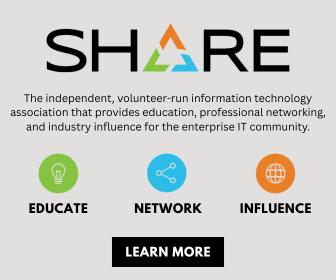Vertali launches ‘Mainframe Shield’ security awareness initiative
‘The mainframe has to be a priority when it comes to enterprise security as everyone interacts with the mainframe on a daily basis – even if they are not aware.’
UK, March 10th, 2025 – Vertali, recognized by the mainframe community as one of the world’s leading authorities on security, is launching an awareness initiative around mainframe cyber security. This focuses on the risks facing organizations, and the need to work collaboratively to protect sensitive data and secure mission-critical applications.
“Mainframe Shield is not a service or a product, it’s about a mindset and embracing new approaches to cyber security and resiliency,” says Leanne Wilson, senior security consultant, Vertali. “It’s about recognizing that more needs to be done, and that protecting and defending our systems must be an absolute priority as the threat landscape continues to evolve and grow.
“There is a misconception that the mainframe is inherently secure. Whilst it is the most securable platform in the world, it doesn’t come like this out of the box. Even with robust security features a mainframe can be vulnerable if not properly configured and managed.”
Leanne points to likely mainframe attacks in recent years, such as those affecting Capital One, Equifax and Marriott, the possible scale of unreported attacks, and the potential costs involved. IBM’s Cost of a Data Breach Report 2024 found the global average cost of a data breach in 2024 was US $4.88 million, a ten percent increase over the previous year, and the highest total ever.
She says, “Mainframe Shield highlights business challenges including compliance, cyber resilience, risk mitigation, security threats, and challenges. We need to work as a community and use all the tools and technologies at our disposal to ensure we can keep our data, applications, people and systems safe always.”
Leanne says this will require embedding a new security culture, flowing outwards from mainframe teams and enterprise security teams to ensure business decision-makers and senior leaders understand the stakes and fully buy-in to that culture.
“Some organizations are further along on that journey. And while things can be done to help improve security at little or no additional cost, security often demands investments, which require that understanding and buy-in.”
In the coming months, the Mainframe Shield theme will be threaded throughout Vertali blogs, podcasts, events, and external speaking engagements.
For more information on Mainframe Shield, email mainframeshield@vertali.com or call +44 (0) 1527 868380.
US Supreme Court upholds IBM win in $1.6 bln software contract case
The U.S. Supreme Court has declined to hear a contract dispute between IBM and BMC Software, effectively ending BMC’s bid to reinstate a $1.6 billion judgment against IBM.
The case stemmed from IBM allegedly breaching an agreement that prevented it from replacing BMC’s mainframe software while servicing AT&T’s systems. In 2022, U.S. District Judge Gray Miller ruled in BMC’s favor, stating that IBM had secretly planned to replace BMC’s software despite agreeing to a “non-displacement” provision.
However, the 5th U.S. Circuit Court of Appeals overturned the ruling in 2023, stating that BMC “lost out to IBM fair and square” and that AT&T independently chose to switch software providers. BMC argued that the decision weakens contract protections, warning of “lasting damage to businesses” in the tech industry.
IBM urged the Supreme Court to reject the appeal, calling BMC’s efforts to reinstate the award a “quest to revive a windfall judgment.” With the Supreme Court’s refusal to review the case, the 5th Circuit’s ruling stands, closing BMC’s legal battle against IBM.
Spokespeople for IBM, BMC, and AT&T have not commented on the decision.
Source: Reuters
IBM contributes key open-source projects to Linux Foundation to advance AI community participation
IBM has contributed three open-source projects—Docling, Data Prep Kit, and BeeAI—to the Linux Foundation, reinforcing its commitment to open-source AI development. This move aims to expand the projects’ reach and invite broader collaboration.
Docling, released a year ago, streamlines the conversion of unstructured documents like PDFs and reports into formats that large language models (LLMs) can easily process. “Docling can make the LLMs answer much better and much more specific to their needs,” says Brad Topol, IBM Distinguished Engineer.
Data Prep Kit, introduced in 2024, simplifies cleaning and transforming unstructured data for LLM applications. Since unstructured data makes up 90% of enterprise data, this tool is crucial for improving model accuracy. “You definitely want good data going in,” says Topol.
BeeAI enables developers to build, discover, and integrate AI agents from various frameworks like CrewAI, LangGraph, and AutoGen. “BeeAI doesn’t just work with its own agents,” Topol notes, emphasizing its flexibility.
By contributing these projects to the Linux Foundation, IBM aims to ensure open governance, foster innovation, and attract new contributors. “The projects are in a wonderful spot where people can invest their resources,” says Topol, highlighting their potential to become industry standards like Kubernetes.
Source: IBM





0 Comments